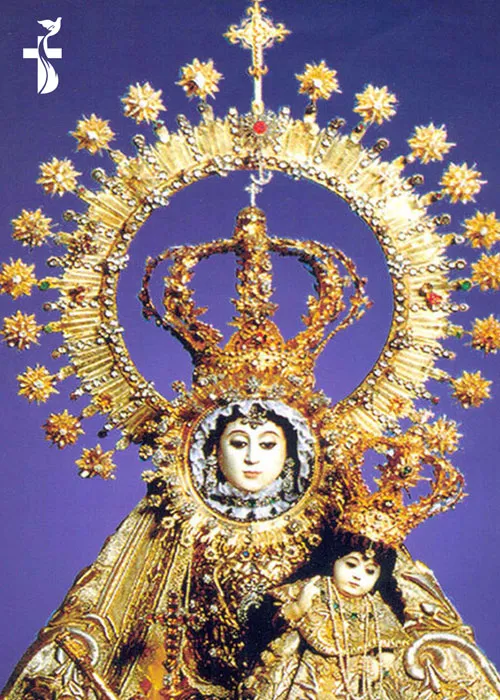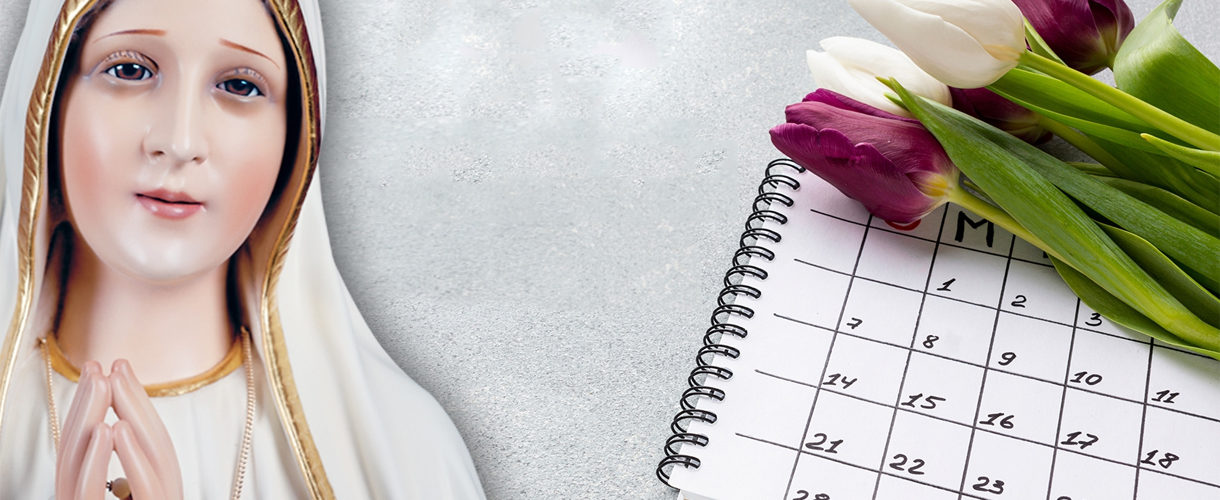
Our Lady Of Naval
Country :
Year : 1646
“Fair and comely art thou, terrible as an army set in battle array”, Holy Mother Church chants in her Office; and truly, Mary proved herself such in the battle of “La Naval” or Laval in 1646. Some Dutch privateers, bent on foraging and possible conquest, sailed dangerously close to the shores of the Philippine Islands. To both the Filipinos, recently converted to the Catholic faith, and the Spanish conquistadores, devoid of arms and ships, the invasion was a serious threat.
To preserve their faith and their island, two commercial galleons were obtained and made ready for battle; they rechristened them: LaRosario and LaEncarnacion, and placed them under the special patronage of the Most Holy Rosary. On the special altars on deck, sailors carried the image of their beloved Queen. Here on their knees, officers and men in two choirs prayed the rosary daily.
At the same time on both ships, officers and men—neither knowing what their comrades-at-arms had done—the Catholic forces made a vow, promising to make an annual pilgrimage to the shrine of the Virgin of the Most Holy Rosary, should they survive the odds they were taking. With this heavenly protection the two galleons met the fifteen Dutch ships in an open encounter. Hail Mary’s mingled with the roar of the battle; the beads dangling from the necks of the men as they launched into the fray and stood their ground against an enemy vastly superior in physical strength. Firing and praying incessantly, they met the enemy five times, and each time the enemy was put to flight. Though the fighting was bitter, only fifteen of the Filipino-Spanish forces were killed.
Grateful to their heavenly protectress the men after the battle, fulfilled their vows which consisted in going to the Church of Santo Domingo at Manila, barefoot, and instituting a public and perpetual feast in honor of the Mother of God. Even to this day that promise has been fulfilled by the Filipinos, who since the memorable time have taken as their own, that pledge made by their ancestors.



